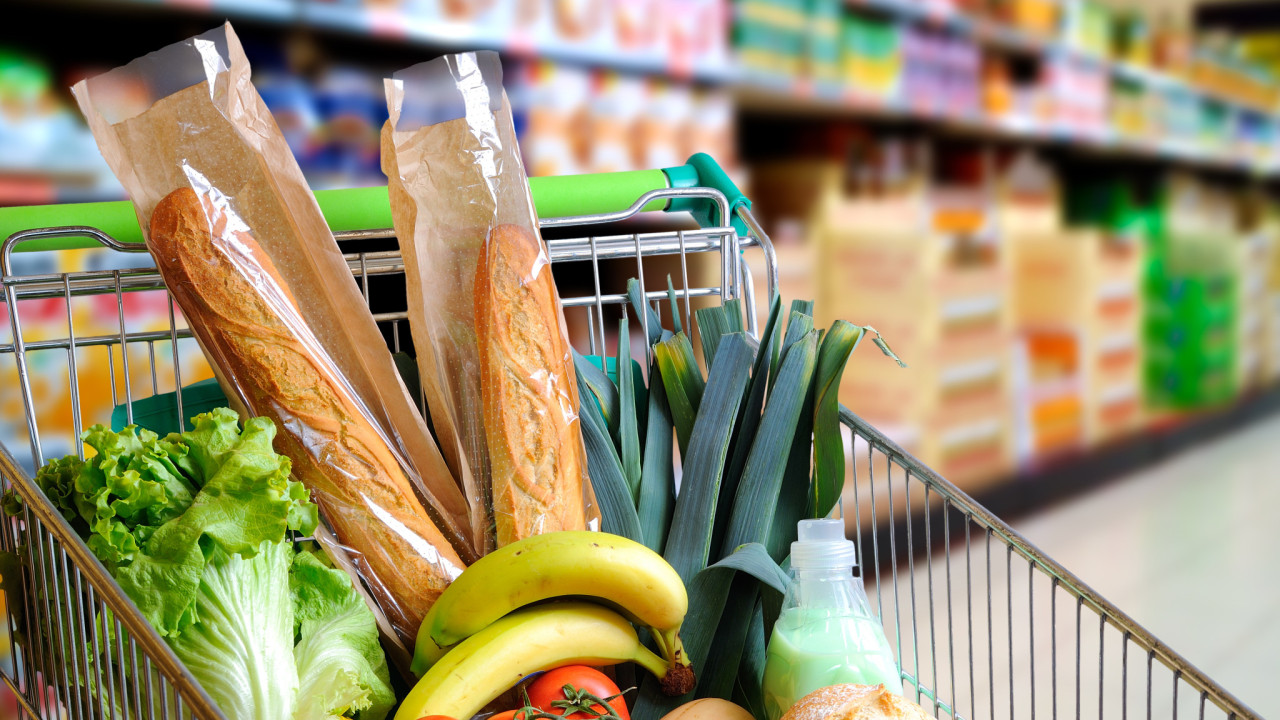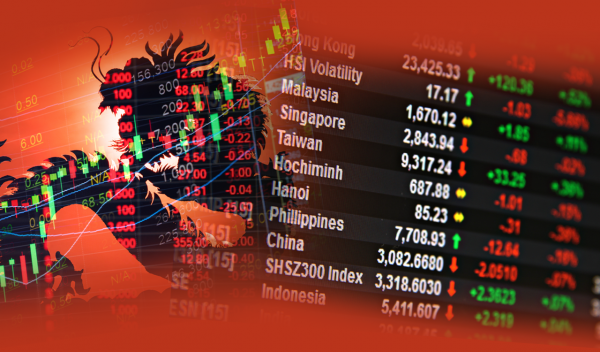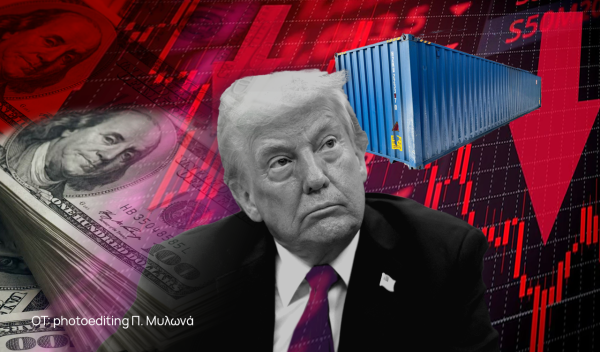
Only six out of ten products sold by small and commercial businesses in Greece are in Greek. However, their share is declining with certain product categories being monopolized by imports.
In the 11th month of 2022 alone, Greeks spent almost 8 billion euros to import food and beverages, i.e. significantly more than in previous years, while 70% of the items in supermarkets (part of the retail trade) are imported.
Increasing costs as well as the problems faced by the Greek economy in previous years caused deindustrialization, a reduction in agricultural production and the replacement of a large part of the products used by Greek consumers by imports from other countries. This resulted in the country’s trade balance being negative with imports in 2022 double Greek exports.
Greek supermarkets: New price hikes of almost 10% on shelves – Reduction in consumption
The Institute of Small Businesses of the Hellenic Confederation of Trade and Entrepreneurship analyzed the source of origin of the products that companies have on their shelves.
A characteristic finding is the significant decrease in the origin of goods from Greece during the last two years. According to data from the Annual Survey of the Hellenic Confederation of Commerce and Entrepreneurship for 2022, although the domestic market remains the main supplier of retail businesses, its share records a strong decline of 10% from 2020 to date (61% in 2022 versus 71% in 2020).
Market players attribute the shift to the domestic market, recorded in 2020, as a result of the severe disruptions experienced in international supply chains due to the pandemic crisis, however, years later this shift does not seem to be sustained, and the volume of products produced by other countries is gradually recovering. countries from which Greece imported in the past.
According to data from the Panhellenic Association of Exporters (PSE) and the Hellenic Statistical Authority, imports of products into Greece across the spectrum from raw materials to finished products increased and, including petroleum products in the period January – December 2022, increased by 27.59 billion euros or by 42.2%, with their total value standing at 93.05 billion euros against 65.46 billion euros during the same period of the year 2021.
The president of the Panhellenic Association of Exporters, Christina Sakellaridis, had pointed out the need to put even more emphasis on strengthening domestic production, which according to her is the key to creating a sustainable economy, which will be able to offer well-paid jobs and perspective in our country’s workforce.
However, Greek industrialists and artisans point out that the soaring cost of energy and raw materials combined with their small size hurts their competitiveness within the Greek market which, given the price hikes that affect households, makes their products expensive forcing the retailing in imports to meet demand at lower prices regardless of whether many of the products imported are of lower quality.
Thus, the decline in the participation of Greek manufactured goods from the domestic market is compensated by the increase in imports mainly from the Asian markets, which register an upward trajectory and return to the levels of 2019 (13.6%).
Foreign suppliers
The above finding of the report substantiates the theory that the pandemic crisis caused a drop in international trade, however the trade of Greece and Asia (especially China) recovered rapidly. EU countries are next, as a source of goods origin, with a percentage of 16.5%, while it appears that imports of goods from other countries are also increasing (6.2% in 2022 versus 0.9% in 2021).
At the same time, the other European countries and Africa – Middle East remain stable at the same low levels (1.6% and 0.9% respectively), while the origin of products from Russia and the USA moves to zero levels for different reasons. fruit and vegetable imports.
Despite the fact that one would expect the imported items to mainly concern industrial products, a significant part of the fresh products – fruits and vegetables – are covered by imports as year by year the Greek agriculture and livestock are declining.
Latest News

Trump Tariffs Jeopardize Growth: Piraeus Chamber of Commerce
The tariffs, aimed at reducing the U.S. trade deficit, are expected to have both direct and indirect effects on the European economy

EU Condemns Trump Tariffs, Prepares to Retaliate
As tensions escalate, the EU is expected to continue negotiations with Washington while preparing for potential economic retaliation.

The Likely Impact of Trump Tariffs on Europe and Greece
Trump tariffs are expected to negatively affect economic growth in the Eurozone while Greece's exports could take a hit.

Motor Oil Results for 2024: Adjusted EBITDA of 995 mln€; Proposed Dividend of 1.4€ Per Share
Adjusted EBITDA for 2024 was down 33% yoy. The adjusted profit after tax for 2024 stood at 504 million euros, a 43% decrease from the previous year

Cost of Living: Why Greece’s 3% Inflation Is Raising Alarm
Greece appears to be in a more difficult position when it comes to price hikes, just as we enter the era of Trump’s tariffs.

Fitch Ratings Upgrades the Four Greek Systemic Banks
NBG’s upgrade reflects the bank’s ongoing improvements in its credit profile, Fitch notes in its report, including strong profitability, a reduction in non-performing exposures (NPEs), and lower credit losses

Trump to Announce Sweeping New Tariffs Wednesday, Global Retaliation Expected
With Trump's announcement just hours away, markets, businesses, and foreign governments are bracing for the fallout of one of the most aggressive shifts in U.S. trade policy in decades.

Inflation in Greece at 3.1% in March, Eurostat Reports
Average inflation in the eurozone settled at 2.2%, compared to 2.3% in February

Greece’s Unemployment Rate Drops to 8.6% in February
Despite the overall decline, unemployment remains higher among women and young people.

Jerry Kalogiratos Highlights Key Role of Energy Transition and Data Demand in LNG Outlook
Energy transition and the prospects of LNG were discussed at Capital Link’s 19th Annual International Maritime Forum, during a panel discussion with Jerry Kalogiratos (Capital Clean Energy Carriers Corp.)
























![ΕΛΣΤΑΤ: Αυξήθηκε η οικοδομική δραστηριότητα κατά 15,6% το Δεκέμβριο [πίνακες]](https://www.ot.gr/wp-content/uploads/2025/03/DSC9655-2-1024x569-1-90x90.jpg)

















 Αριθμός Πιστοποίησης
Αριθμός Πιστοποίησης